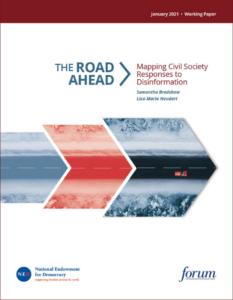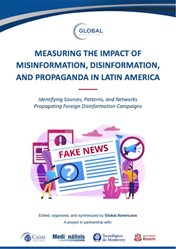 Disinformation presents a profound threat to democracy, Canadian Prime Minister Justin Trudeau’s told the Dutch Parliament today.
Disinformation presents a profound threat to democracy, Canadian Prime Minister Justin Trudeau’s told the Dutch Parliament today.
“It’s not just conspiracy theorists and marginalized, angry people online,” he said. “It’s state actors, too, using disinformation, propaganda, and cyberwarfare to harm our economies, our democracies, and undermine people’s faith in the principles that hold us together.”
Trudeau did not name any particular state actor, but more than one question from Dutch parliamentarians centred on the rising influence of China, CTV News adds, a fact Trudeau said “poses tremendous challenges around the world to democracies and our trading systems.”
Misleading facts, conspiracy theories and political disinformation circulating online could pose a clear and present danger to democratic society, analysts Jacob T. Rob, and Jacob N. Shapiro write in A Brief History of Online Influence Operations, a valuable survey from Lawfare. But now a “new ecosystem” of pro-democracy actors has systematically documented various influence efforts, they add, citing….
- academic research centers such as the CSMap Lab at New York University, Clemson University’s Social Media Listening Center, and Cardiff University’s OSCAR Center;
- think tanks that combined research with policy advocacy, including the German Marshall Fund’s Alliance for Securing Democracy and the Australian Strategic Policy Institute’s Cyber Policy Centre;
 several groups established cooperative relationships with Facebook, most notably the Digital Forensic Research Lab and the Stanford Internet Observatory, enabling them to contextualize content the company was removing, providing vivid examples of online disinformation;
several groups established cooperative relationships with Facebook, most notably the Digital Forensic Research Lab and the Stanford Internet Observatory, enabling them to contextualize content the company was removing, providing vivid examples of online disinformation;- a few for-profit companies, such as FireEye and Graphika, published regular reports on the topic as part of their business development efforts, providing a valuable public good in addition to supporting corporate goals.
Collectively these organizations created an implicit catalog of political disinformation, which proved invaluable as one of us built data on online influence operations around the world since 2011, they add. RTWT
 How is misinformation, disinformation, and propaganda disseminated in Latin America and the Caribbean by foreign state media sources and consumed by regional audiences? And what are the policy implications?
How is misinformation, disinformation, and propaganda disseminated in Latin America and the Caribbean by foreign state media sources and consumed by regional audiences? And what are the policy implications?
Such efforts work to amplify existing political fault lines, increase distrust with democratic governments, and portray China and Russia as alternatives to the United States as a regional partner, says a new report from Global Americans, a partner of the National Endowment for Democracy (NED). Foreign state media outlets approach the region in varied ways, fine-tuning their approach depending on the local political context, whether that be in Mexico, Colombia, Peru, Argentina, Chile, or any other country in the region, say the authors of Measuring the Impact of Misinformation, Disinformation, and Propaganda in Latin America.
Working with four local counterparts —Centro para la Apertura y Desarrollo de América Latina (CADAL), Medianálisis, the Universidad del Rosario, and the Escuela de Gobierno y Transformación Pública del Tecnológico de Monterrey—Global Americans spent nearly 16 months identifying and analyzing how foreign regimes use these tools in Latin America and the Caribbean. RTWT
Facebook whistleblower Frances Haugen said that through misinformation abroad the company has played a pivotal role in spreading disinformation and suppressing democracy from Ethiopia and India to Myanmar and the Philippines.
Bret Schafer, a senior fellow at the Alliance for Securing Democracy, tells NPR how China is able to spread misinformation around the world by taking advantage of the way search engines find and list content.







